
Firebrand Australian Senator Hanson takes far-right campaign to rural Queensland ahead of state election
Many in the remote areas see her views and her One Nation party’s policies as mainstream
It was early morning last Thursday when Pauline Hanson’s rented “battler bus” started hissing so loudly the election campaign was halted at a service station on a stretch of desolate highway near a remote edge of Australia. Unable to get to the rural Queensland state voters she is relying on to deliver her anti-immigration One Nation party its best result in two decades, her supporters came to her.
Stranded near the gemstone mining town of Marlborough, with a population of just a few hundred, Hanson was approached by truckers and travellers, most hoping to get a picture taken with her.
“I was actually stopping to get something to eat, and as I was looking across I went, ‘Oh there’s the ‘battler’ bus, I’ll have to go say hello to Pauline,’” said truck driver Shane Williams.
“I think immigration is a big thing for everybody. I think it’s going to be a good thing if Pauline gets some say in parliament – keep the b******s honest.”
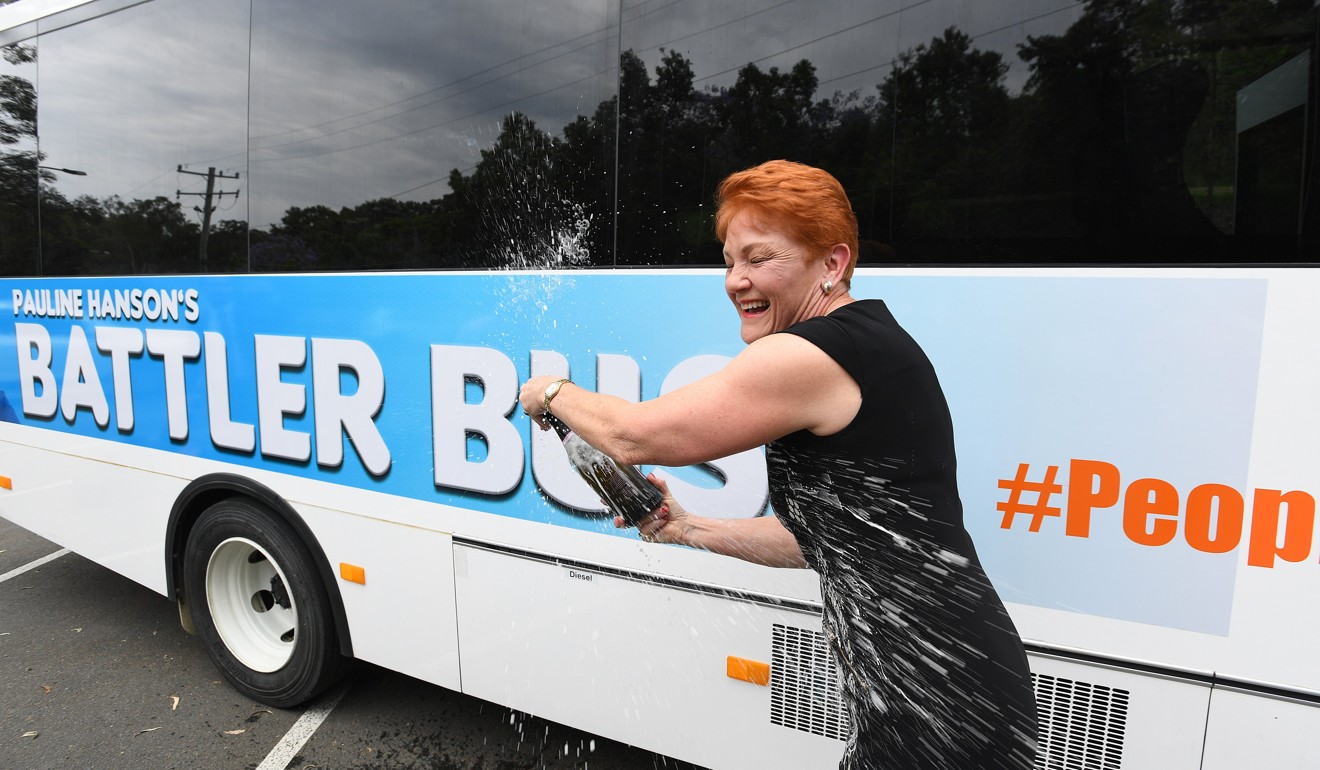
She speaks like us … People call us racist, but we are just telling it like it is
Hanson is not a candidate in the Queensland state election on November 25, having last year re-entered the federal parliament on a wave of popular support after a near two-decade absence.
But her face is on almost every One Nation party hoarding and flier in Queensland’s coal-rich and sugar cane growing heartland, turning the vote into a test of whether Hanson’s resurgence continues, or is pushed back to the fringes.
To Australia’s most prominent right-wing nationalist it is not about joining a global populist push; it is that the rest of the world is finally catching up.
“I was espousing a lot of this 20 years ago,” Hanson told Reuters in the sunny tropical town of Townsville, a gateway to the Great Barrier Reef marine park.
US President Donald Trump’s election victory a year ago, however, “is resonating across the world”, she added.
“This is definitely the start. People are starting to wake up. You see people had no one else really to vote for.”
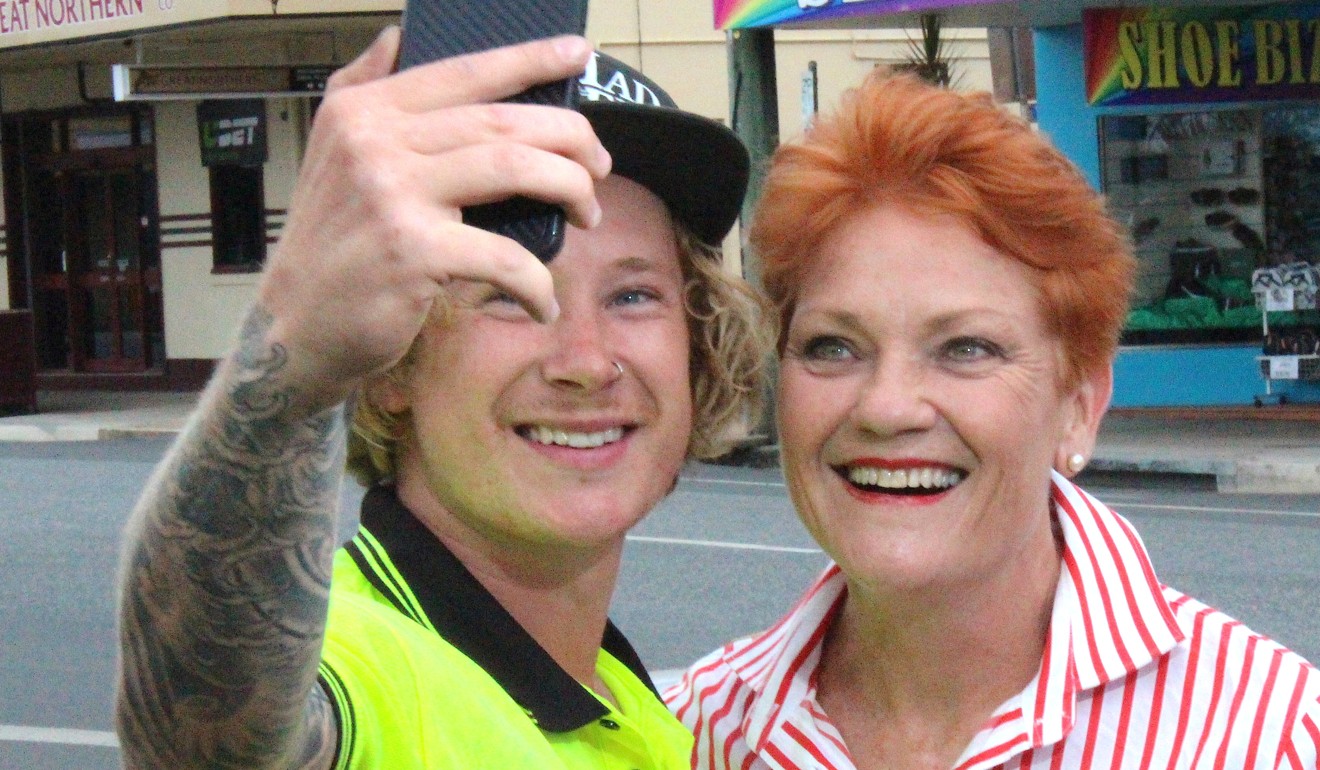
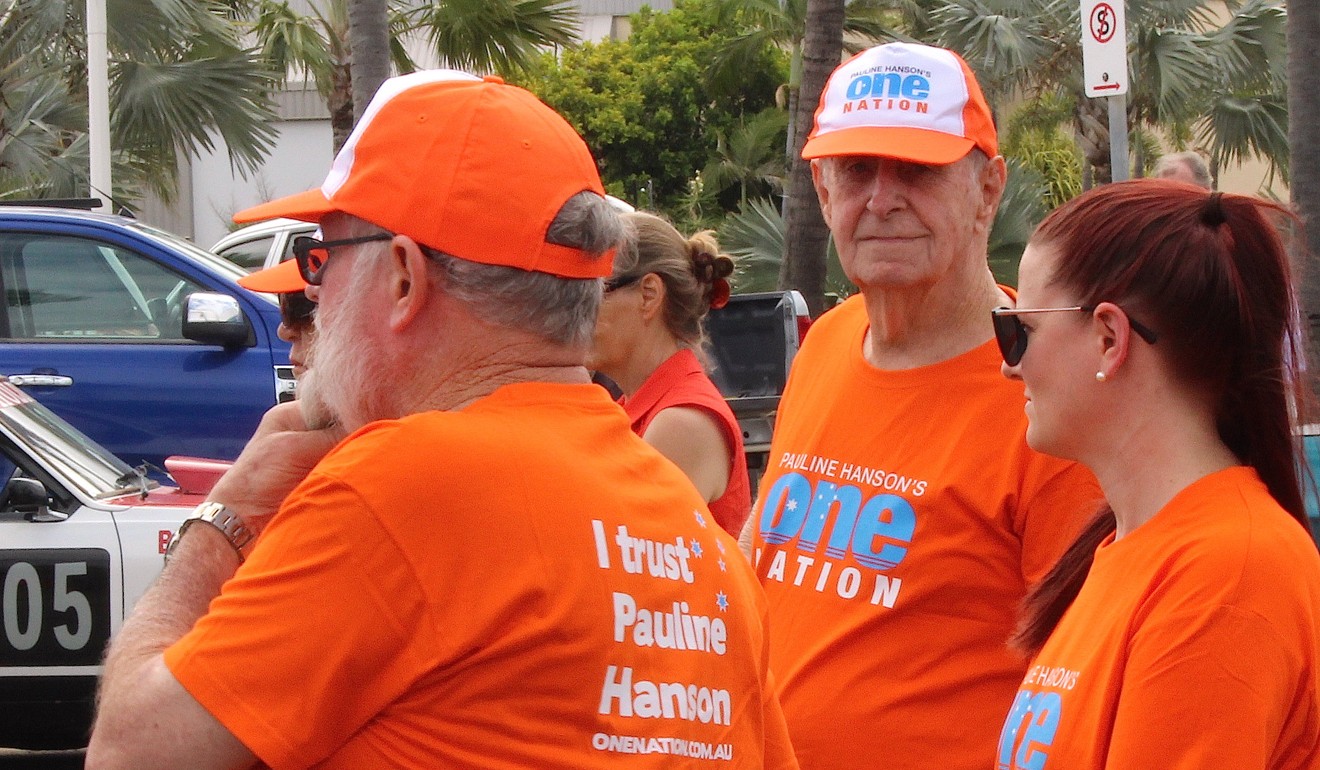
With its turbo fixed, Hanson’s bus rolled down the road, three hours late, stopping at several towns before arriving at a town hall-style event that evening more than 400km away.
Hanson’s town halls are a mix of stump speech and off-the-cuff observations, usually involving stories she has heard from locals on the campaign trail. Those stories include claims that foreigners are buying up agricultural land, immigrants are not paying taxes, complaints about crippling energy prices and government handouts to Aboriginals, or support for a ban on Muslim migrants.
Hanson’s rhetoric can be blunt and draws almost instant condemnation in the cities, where she’s often viewed as extreme. But in her rural heartland, where one town can be in drought while another gets hit by cyclonic floods, she is the mainstream.
“She’s the only one trying to save our country really,” said 20-year-old Jack Roach in Proserpine, a sugar cane town of 3,500 in Queensland.
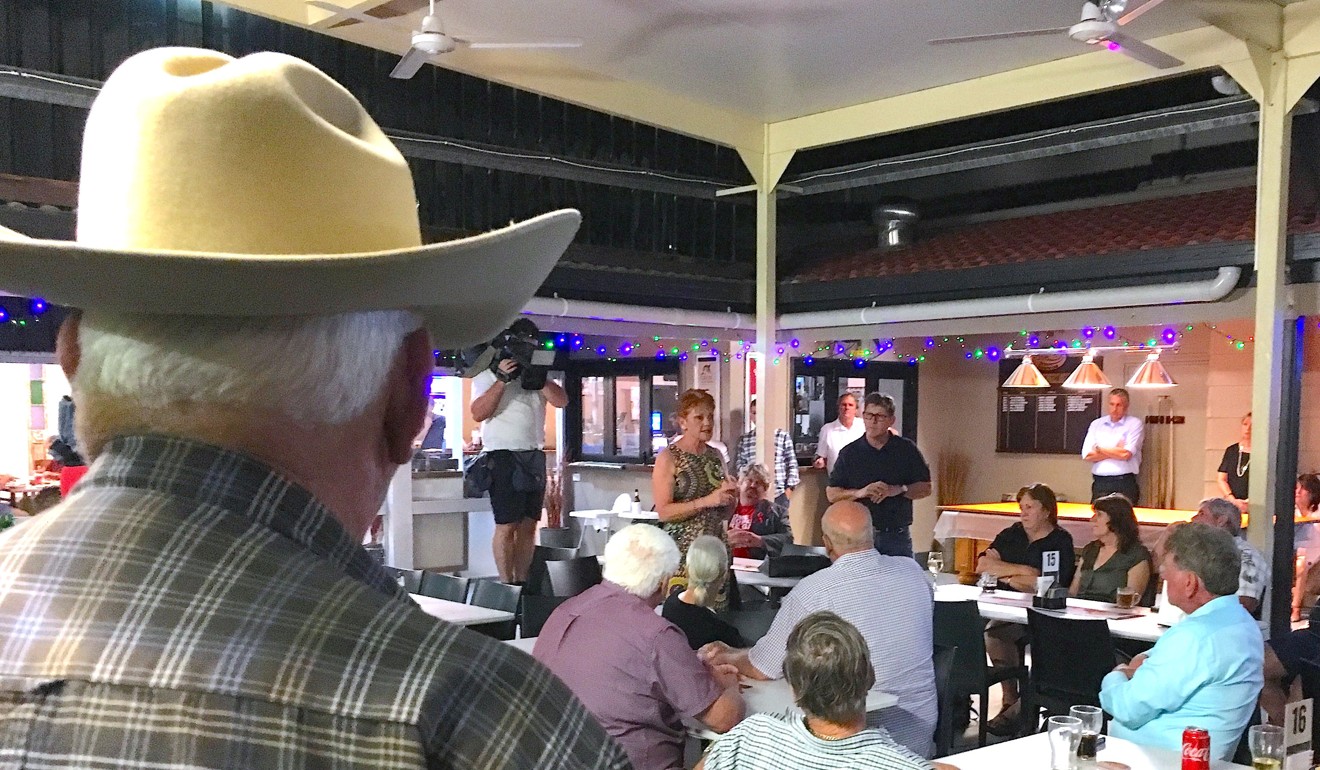
Polls suggest One Nation might take about 20 per cent of the popular vote in Queensland, Australia’s third most populous state. That would mark its biggest electoral success since the 1990s. But it is unclear whether that will translate into more than a handful of seats among the 93 parliamentary seats at stake in the election.
On the hustings, support appears very strong in towns beyond the black stump – a colloquial term in Australia to describe remote areas – as well as coal-producing areas and sugar cane fields. Vigorous opposition to Hanson’s policies comes from more tourist-dependent coastal areas.
To her supporters, Hanson is the plain-speaking, anti-politician who can shake up the Liberal-National and Labor political establishment in Australia.
“She speaks like us,” said 24-year-old carpenter Brodie Tophan, who works south of the coastal town of Bowen and approached Hanson for a “selfie”.
“People call us racist, but we are just telling it like it is.”
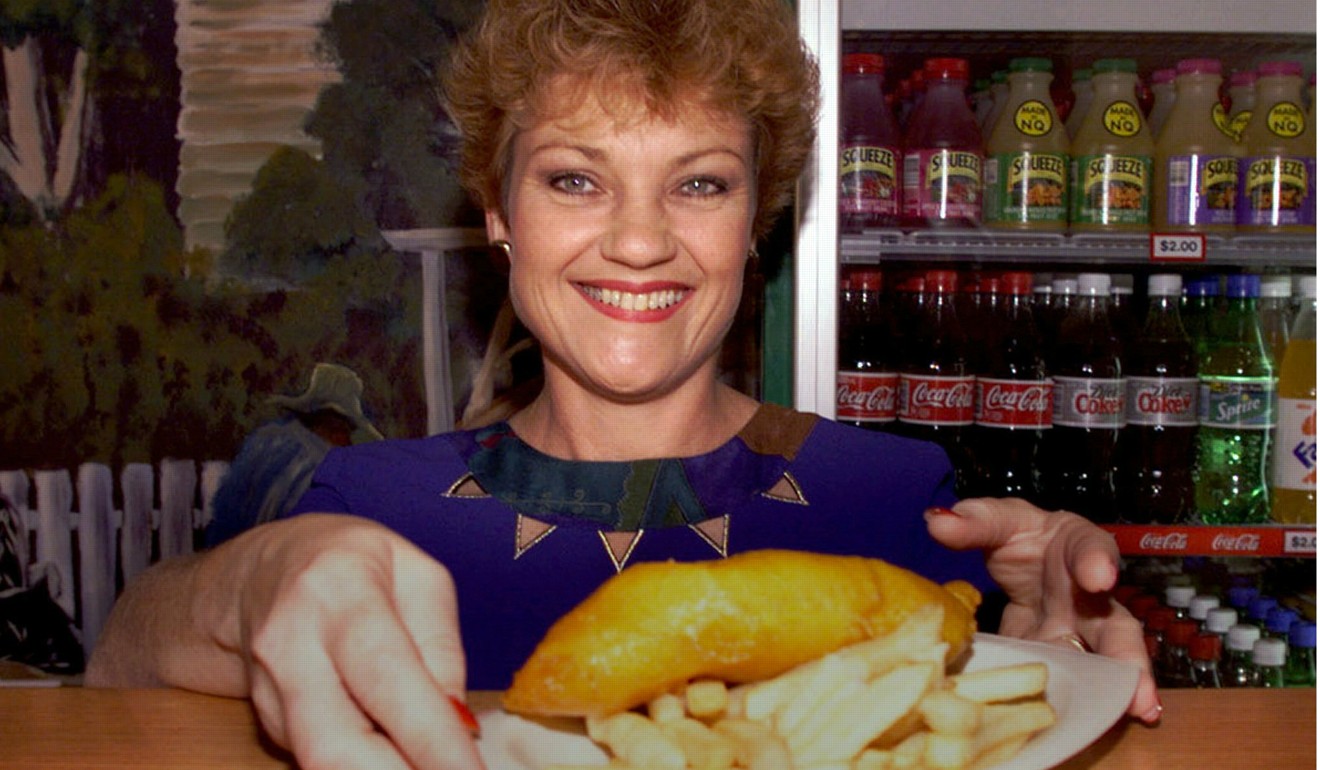
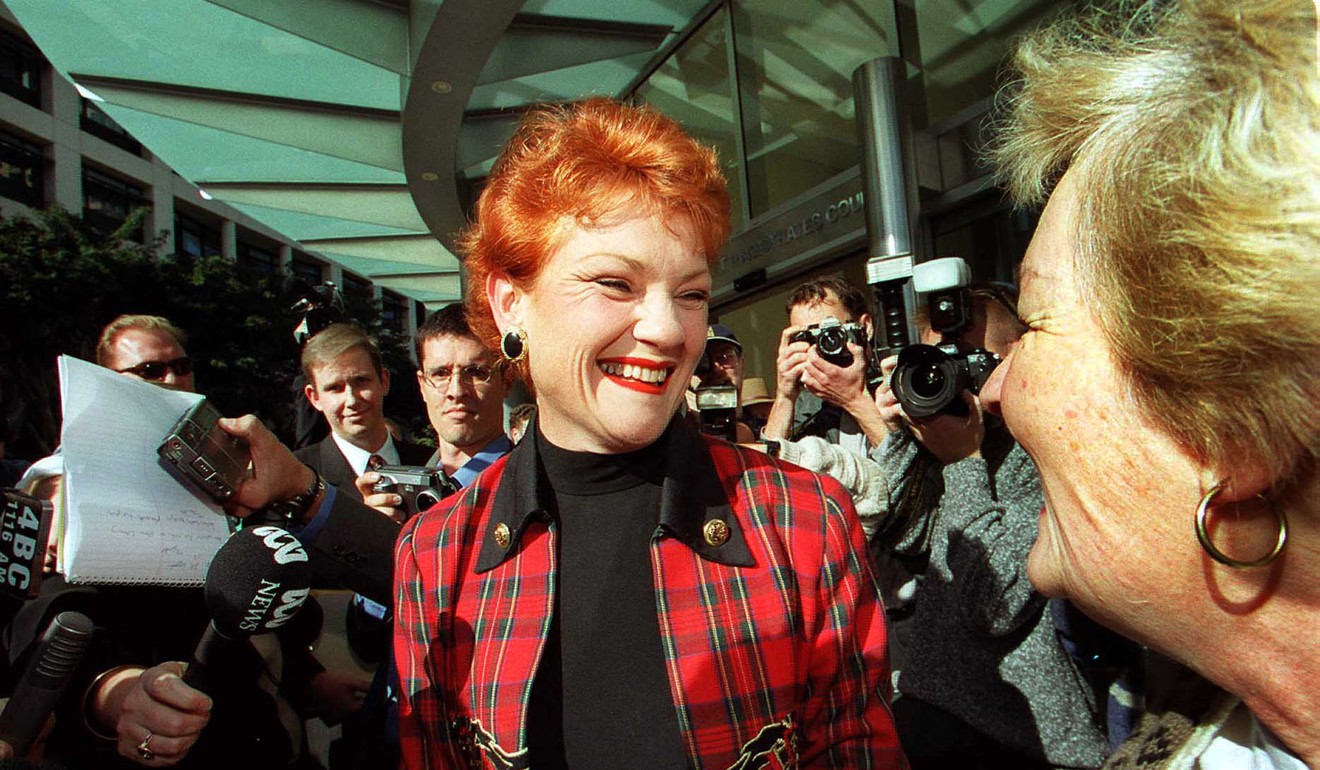
Australia’s modern far right movement was born in 1996 in the city of Ipswich, an inland river port and former coal mining centre in Queensland, where Hanson made an unlikely but successful run for political office while managing a fish and chip shop.
After using her maiden speech in parliament to warn the country would be “swamped by Asians”, she co-founded the One Nation party. It enjoyed early electoral success, before imploding over infighting.
The party power struggle and Hanson’s 11-week imprisonment for electoral fraud in 2003 – eventually quashed – halted her momentum and she spent years struggling to regain her once formidable connection to voters.
Labor parliamentarian Jennifer Howard, who is contesting the seat of Ipswich, said the mainly white area that fostered Hanson’s rise in the 1990s has given way to a more diverse population that will hinder One Nation’s success.
Howard said she used to take her children to Hanson’s shop in the late 1980s.
“My daughter used to say to me, ‘Why is that lady always so angry?’” she recalled.
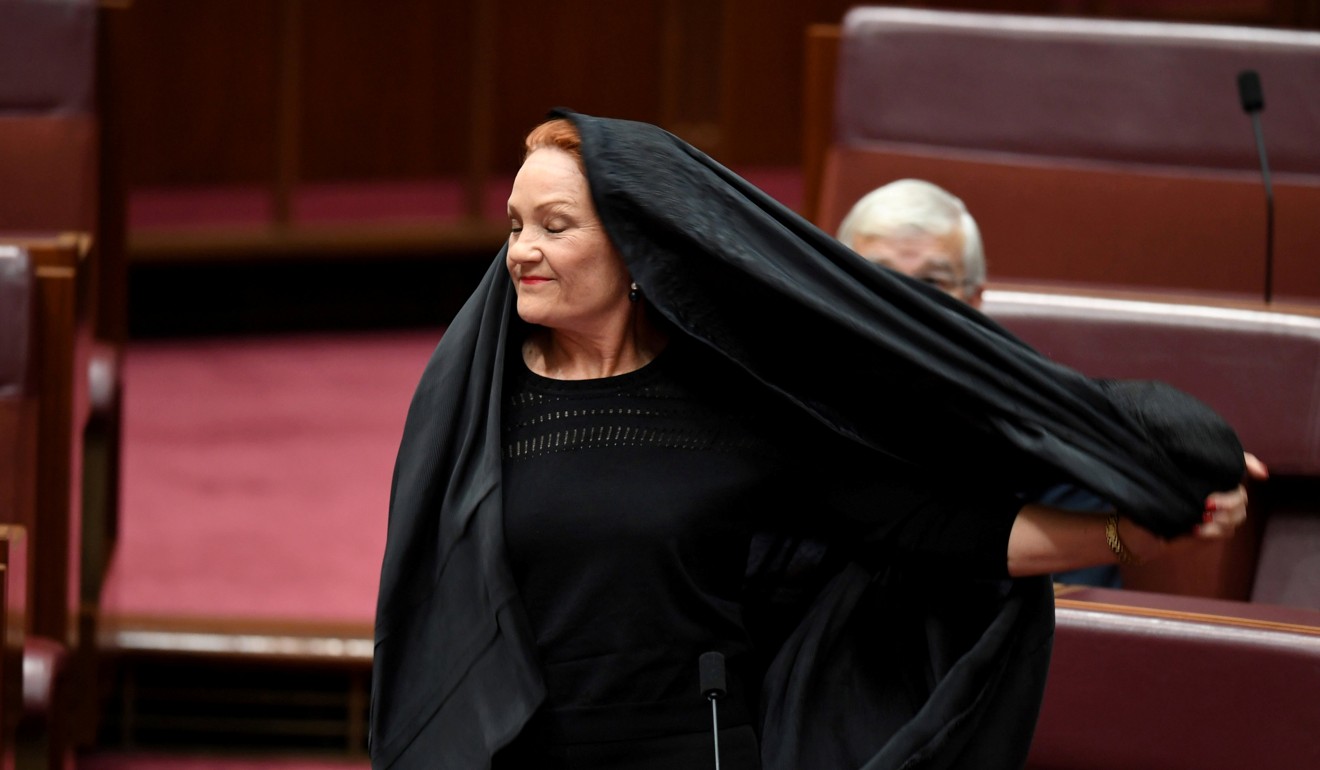
Hanson’s rage against her political foes looks likely to continue until a better advocate of her nationalist policies emerges. That is yet to happen, with past changes to the party leadership proving unsuccessful, and newer right-wing parties unable to attract anywhere near Hanson’s popular support.
Moreover, an overtly anti-immigration party is swimming against the demographic tide: government data shows one-in-three Australians today were born overseas, compared to one in five 20 years ago.
That is evident even at Hanson’s old fish and chip shop, now run by Vietnamese immigrant Thanh Huynh, who described her as “interesting” without disclosing who she would vote for.
The shop’s menu offers most of the same items Hanson used to make, including dagwood dogs – or corn dogs – but has some imported ideas, including Vietnamese spring rolls.

